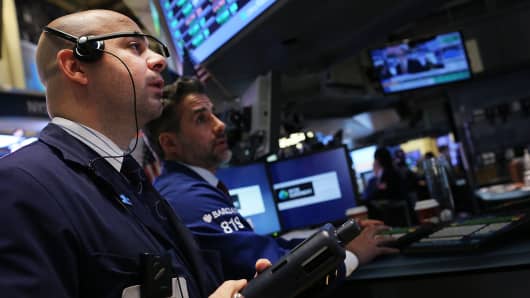The retail crowd pushed the market to its best January in 16 years in a rally driven by relief that the worst-case scenario didn't come to pass in Washington's deficit-reduction negotiations, as well as modestly positive earnings reports.
Participation from average investors had been missing for much of the four-year rally after the financial crisis. Corporations provided much of the volume in the market in a continuing aggressive move toward buying back shares and pushing stock prices higher.
So while the return of retail investors to the market is cause for cheer in the short term, the lack of corporate participation could be troublesome further out, particularly if the market gets rocked again by geopolitical concerns and the economy weakens. (Read More: Why Budget Cuts Could Throw Economy Into Recession)
"As we survey the liquidity landscape, we increasingly do not like what we see," Santschi said. "Investors are piling into stocks at a record pace, while companies are no longer supporting share prices. In the past, a combination of massive investor buying and net corporate selling has often coincided with market tops."
The amount of shares available, or float, increased modestly during the month, a negative sign based on supply-and-demand factors and attributable not to new issuance but to a lack of buybacks.
One reason corporations may be keeping a low profile is because of a late-year spurt of dividend increases and buybacks at the end of 2012 in anticipation of higher capital gains and dividend taxes resulting from Washington's "fiscal cliff" bargaining.
"It may also reflect growing caution in corporate boardrooms," Santschi said.
Earnings season usually provides a boost to buybacks but has not thus far, a factor Santschi said he will be watching to determine longer trends in market activity.



